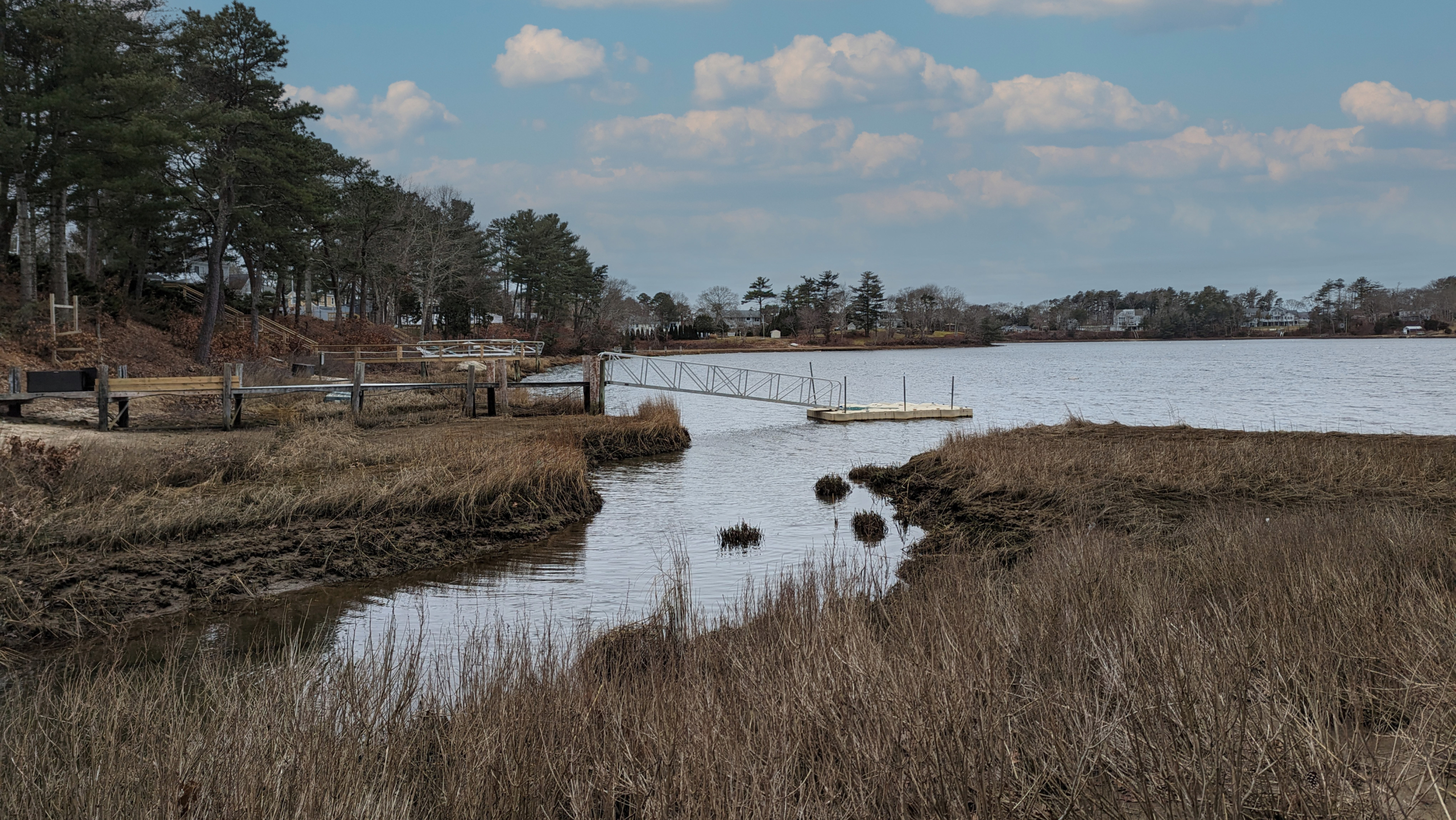Cape Cod Coastal Habitat Restoration Projects Receive $5M in Grant Funding

Coastal wetlands play an essential role in the environment, including flood protection, mitigating shoreline erosion, providing vital habitat for native fish and wildlife, and improving water quality. These important spaces are in decline due to decades of developmental pressures and impacts from climate change. Our scientists and engineers have been committed to protecting and restoring these vital ecosystems and improving resiliency across the Northeast, including Cape Cod.
Two coastal habitat restoration projects in Yarmouth and Bourne have been awarded $5 million in grant funding through the National Oceanic and Atmospheric Administration (NOAA) Coastal Zone Management Habitat Protection and Restoration Bipartisan Infrastructure Law (BIL) Competition. Our firm serves on the project teams for these restoration efforts, supporting resilience and ecological restoration planning and design in addition to assisting with grant funding applications.
The projects were selected through a highly competitive process, with only 22 of 67 projects applications funded across 16 states, focused on habitat restoration planning, engineering, design, and conservation.
The Upper Bass River Coastal Habitat Restoration Project in Yarmouth was awarded $4.7 million to restore 57 acres of retired cranberry bogs along the Upper Bass River to a functioning wetland system, including removing berms and flow control structures, partial dam removal, and replacing a concrete fishway with a natural channel.
Our team is working with Friends of Bass River and the Town of Yarmouth to replace a partially collapsed culvert over Hamblins Brook at Weir Road with a concrete arched bridge. Services include a comprehensive study to determine appropriate replacement alternatives, geotechnical borings and analysis, restoration planning, environmental permitting, and culvert replacement / bridge design.
The new structure will reestablish flows and habitats, allow for natural nutrient improvements, reduce the risk of flooding adjacent properties and infrastructure, and create recreational areas for residents.
This grant funding supports our work on the final design for the new bridge and construction phase services.
These coinciding projects will contribute to a larger wetland restoration effort of the Bass River ecosystem totaling over 160 acres.
Rick Bishop, Executive Director of Friends of Bass River, said: “Tighe & Bond served as a vital project partner to coordinate the different aspects of this comprehensive, multi-faceted project requiring a wide range of expertise across different disciplines. The team, led by Eric Ohanian, addressed our unique project challenges, including balancing resiliency with adjacent restoration work and MassDOT design standards, as well as pursuing various funding sources that moved the project forward to receive the NOAA grant funding. This effort will reinstate a vital fish passage while creating durable and resilient infrastructure that works cohesively with the environment and contributes to our broader ecological restoration work in the Upper Bass River area.”
Tighe & Bond is working alongside Interfluve, who has been leading the bog restoration effort funded by the grant award, and Woods Hole Group, who is leading the hydrological and hydraulic modeling.
The Puritan Bog Coastal Wetland Restoration Project in Bourne was awarded $338,000 towards the restoration of 15 acres of coastal and freshwater wetlands at a retired cranberry bog. Our firm is working alongside Princeton Hydro to support the ecological planning, modeling, design, and permitting processes to address multiple tidal restrictions and to restore coastal wetland functions and values.
Led by the Buzzards Bay Coalition and the Town of Bourne, our work seeks to remove relic bog infrastructure impacting natural tidal flow, reestablish native salt marsh vegetation, support diversity of plants and wildlife, and mitigate against sea level rise.
Our current services include surface and tidal water level monitoring, groundwater monitoring, ecological assessment surveys, topographic and Unmanned Aerial Vehicle (UAV) surveys, modeling and conceptual design support, and public meeting facilitation. Grant funding will also support additional services for the next phase of work, including wetlands delineation (inland and coastal resource areas), geomorphic investigation, sediment sampling and management planning, environmental permitting, and geotechnical studies.
Kristopher Houle, Senior Project Manager, said: “We are thrilled that our Project Team was successful in receiving this funding to support these efforts to restore former cranberry bogs into resilient coastal wetlands. This work is just one step in a larger coastal wetland restoration effort on the Cape that will strengthen the ability of these habitats to resist the impacts of climate change. We look forward to continuing to work with our partners and stakeholders to restore these vital areas and promote resiliency for protecting our coastal communities.”
Funding for the projects was secured by the Massachusetts Office of Coastal Zone Management (CZM) in partnership with the Massachusetts Department of Fish and Game’s Division of Ecological Restoration (DER), Friends of Bass River, Town of Yarmouth, Buzzards Bay Coalition, and Town of Bourne.


